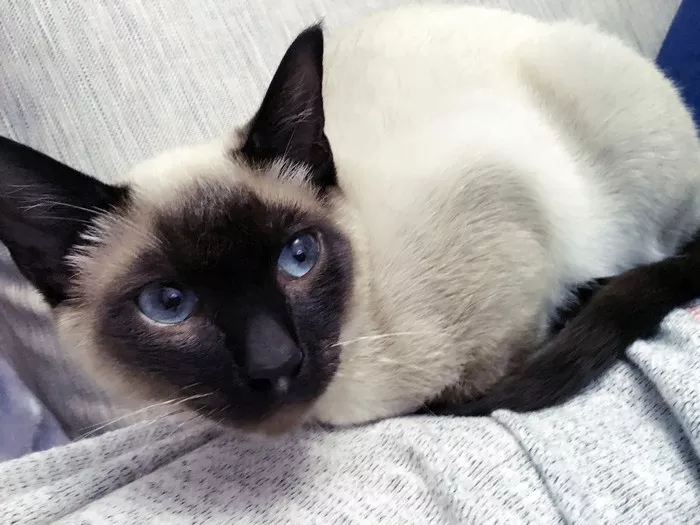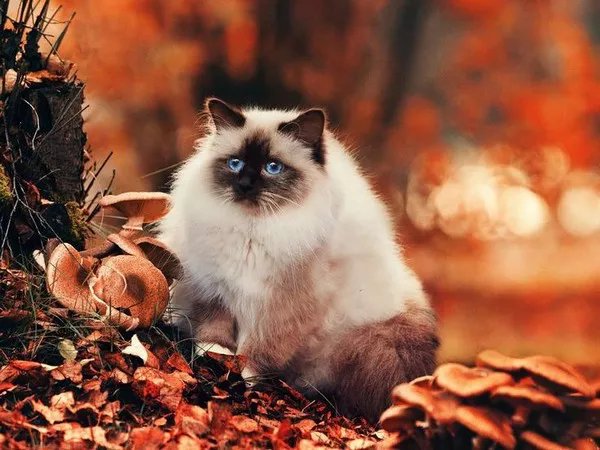Siamese cats, with their striking blue almond-shaped eyes and distinctive color points, are not only known for their regal appearance but also for their playful and sociable nature. As responsible cat owners, understanding the dietary needs of Siamese cats is crucial for their overall health and well-being. In this comprehensive guide, we explore the intricacies of what Siamese cats can and cannot eat, shedding light on dietary considerations that will contribute to a long, healthy, and happy life for your feline friend.
Siamese Cats: A Unique Breed
Physical Characteristics:
Siamese cats are known for their sleek, slender bodies, short coats, and distinctive color points on their ears, face, paws, and tail. Their unique features also extend to their dietary requirements, making it essential for owners to tailor their nutrition to the specific needs of this breed.
Energetic and Sociable Nature:
Siamese cats are highly interactive and thrive on human companionship. Their playful nature and boundless energy levels require a well-balanced diet to support their activity and maintain optimal health.
The Do’s: A Healthy Siamese Diet
High-Quality Cat Food:
Providing a high-quality commercial cat food formulated for the specific nutritional needs of cats is the foundation of a Siamese cat‘s diet. Look for products with real meat as the primary ingredient and avoid those with excessive fillers or artificial additives.
Protein-Rich Diet:
Siamese cats are carnivores, and their diet should reflect this. Opt for cat food that is rich in high-quality animal protein to support their lean muscle mass and overall vitality.
Proper Hydration:
Siamese cats may be prone to urinary issues, making proper hydration crucial. Ensure your cat has access to fresh, clean water at all times. Wet cat food can also contribute to their water intake.
Balanced Nutrients:
Siamese cats benefit from a well-balanced diet that includes essential nutrients such as taurine, omega-3 fatty acids, and vitamins. These nutrients contribute to eye health, coat condition, and overall immune function.
Portion Control:
Siamese cats are prone to obesity, so maintaining an appropriate weight is essential for their health. Practice portion control and monitor their weight to prevent overfeeding.
The Don’ts: Hazardous Foods for Siamese Cats
Chocolate:
Chocolate contains theobromine, a substance that is toxic to cats. Keep all chocolate products, including cocoa powder, away from Siamese cats to avoid potential poisoning.
Onions and Garlic:
Onions and garlic, whether raw or cooked, can cause damage to a cat’s red blood cells and lead to anemia. Ensure that any prepared or cooked foods do not contain these ingredients.
Caffeine:
Caffeine, found in coffee, tea, and some sodas, can be harmful to Siamese cats. Ingesting caffeine can lead to symptoms such as increased heart rate, restlessness, and, in severe cases, poisoning.
Alcohol:
Alcohol, even in small amounts, is toxic to cats. Keep all alcoholic beverages out of reach, as ingestion can lead to severe health issues, including liver damage.
Bones and Fish Bones:
While a small amount of cooked boneless fish is generally safe, fish bones can pose a choking hazard or cause intestinal blockages. Ensure that any fish offered is boneless and cooked.
Dairy Products:
Despite the common misconception, many adult cats, including Siamese cats, are lactose intolerant. Avoid feeding them milk or dairy products to prevent digestive issues.
Addressing Special Dietary Considerations
Siamese Cats with Allergies:
Some Siamese cats may have food allergies or sensitivities. If you notice signs of allergies, such as vomiting or diarrhea, consult with a veterinarian to identify and eliminate the problematic ingredient from their diet.
Siamese Cats with Health Conditions:
Siamese cats may be prone to certain health conditions, such as dental issues or kidney problems. In such cases, work closely with a veterinarian to tailor a diet that addresses these specific health concerns.
Conclusion:
In conclusion, a well-balanced and carefully curated diet is pivotal for the health and happiness of Siamese cats. By adhering to the dietary do’s and avoiding the don’ts, cat owners can contribute significantly to the overall well-being of their feline companions.
Understanding the unique nutritional needs of Siamese cats, addressing specific dietary considerations, and staying vigilant about potential hazards ensure that these regal and affectionate cats lead long, healthy lives. As responsible cat owners, providing the best nutrition for our Siamese friends is an expression of love and commitment to their well-being.

























